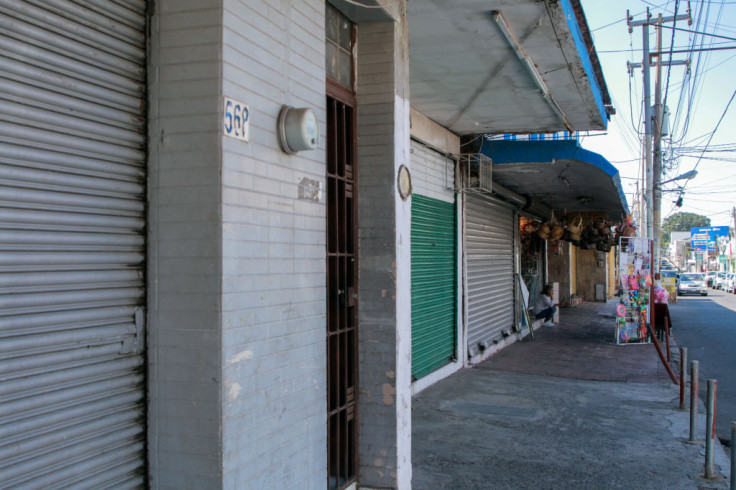
Nearly three months into the ongoing turf wars between two warring factions of the Sinaloa Cartel, "Los Chapitos" and "La Mayiza," the state of Sinaloa has paid dearly in terms of both human and economic losses.
The ongoing clash began in September after brewing for weeks following the arrest of Ismael "El Mayo" Zambada and Joaquín Guzmán López, son of Joaquín "El Chapo" Guzmán on U.S. soil. Since then, around 500 homicides have been reported in the state as Zambada accuses Guzmán of betraying him.
According to Mexican outlet Milenio the average homicide rate in Sinaloa before the turf war stood between 30 and 40 homicides a month. In September, the state reported 144 homicides, followed by 188 in October and 175 in November. On Tuesday, CNN reported of at least 42 deaths last week alone.
But apart from the hundreds of human losses, the economic the conflict has had in the state capital has been huge too, according to economic leaders.
In the 85 days since conflicts began, Sinaloa's capital city of Culiacán estimates economic losses close to $1 billion, as all sorts of businesses and establishments have had to close or alter their business hours due to cartel-related violence.
That is according to a statement made by Martha Reyes, the president of Coparmex, an employer's union that represents entrepreneurs in Mexico. Reyes said in an interview that at the group estimates that at least 25,000 jobs have been lost since September. She added she will ask Congress for supplemental help for entrepreneurs, such as soft loans.
Reyes' comments match those of Paloma Sánchez, a senator for the Institutional Revolutionary Party (PRI), who also criticized the approach taken by Sinaloa Gov. Rubén Rocha Moya during the last three months.
"He is indifferent to what is happening...he takes it lightly, making jokes about how entrepreneurs are exaggerating things," Sánchez said.
Guadalupe Zavala, president of Culiacán's chamber of commerce, also estimates the economic impact to be around that number.
Zavala added that, as 400 new National Guard units prepare to arrive to Sinaloa during the month of December, they will help businesses to remain open to the public a bit longer than its current business hours.
Jobs have also been impacted by the cartel's internal conflicts. More and more people have migrated to other cities around Mexico as they try to escape their crime-ridden communities or simply are pushed out of their homes by cartels. Zavala said that due to these factors, the city of Culiacán has seen a decrease between 5% to 10% in their workforce.
Government officials deny the figures
Sinaloa's Secretary of State Feliciano Castro Meléndez denied that 25,000 jobs have been lost due to cartel-related violence across the state.
He said that, according to data from the Mexican Social Security Institute (IMSS), more than 12,000 jobs have been created in the last three months in Sinaloa, particularly in the commerce, industrial and service sectors.
"These are numbers from the Social Security," Castro Meléndez said. "But to talk about 25,000 jobs, our hypothesis after using this data, says that they do not have the necessary information to support their claim," he added.
© 2025 Latin Times. All rights reserved. Do not reproduce without permission.









